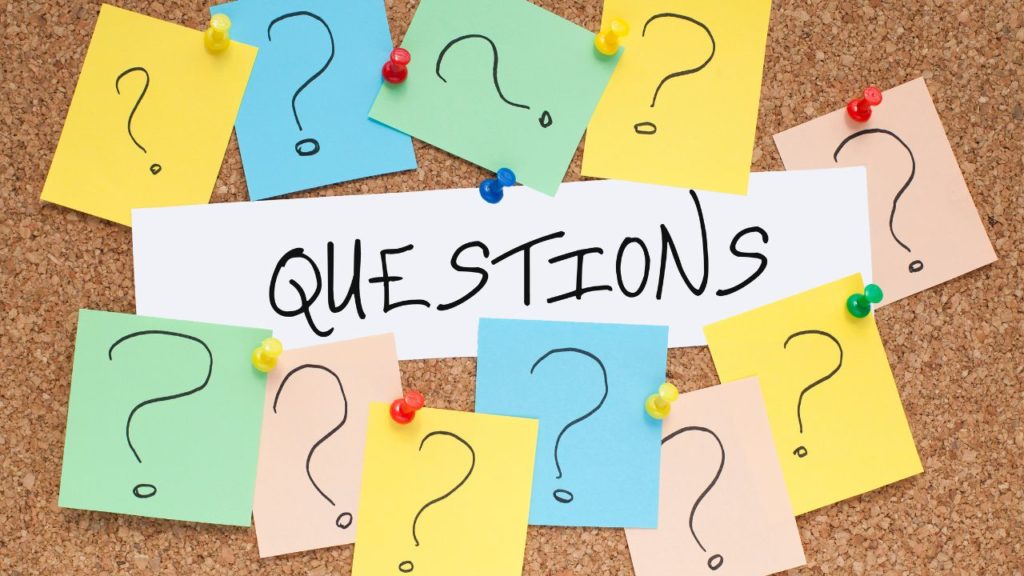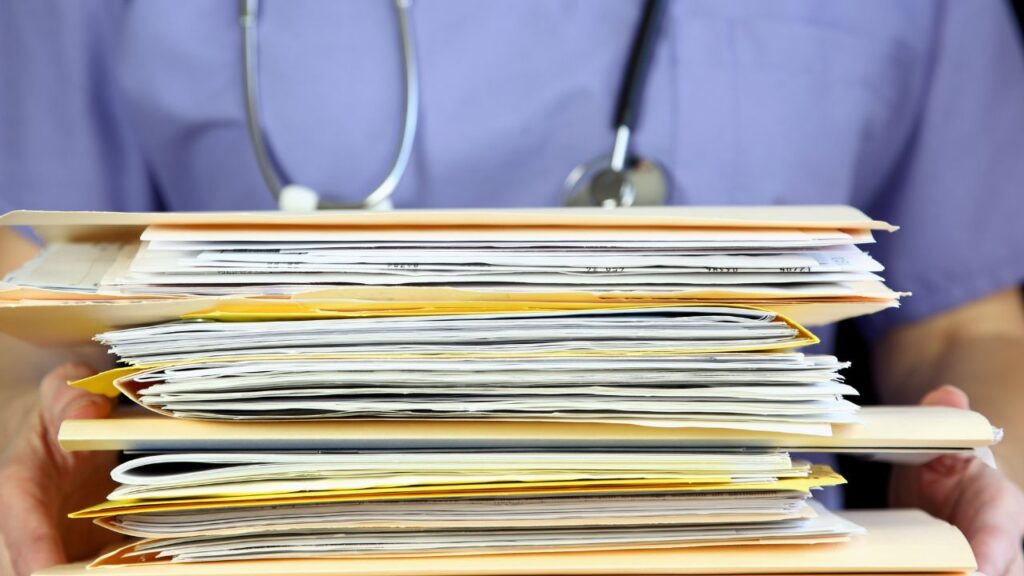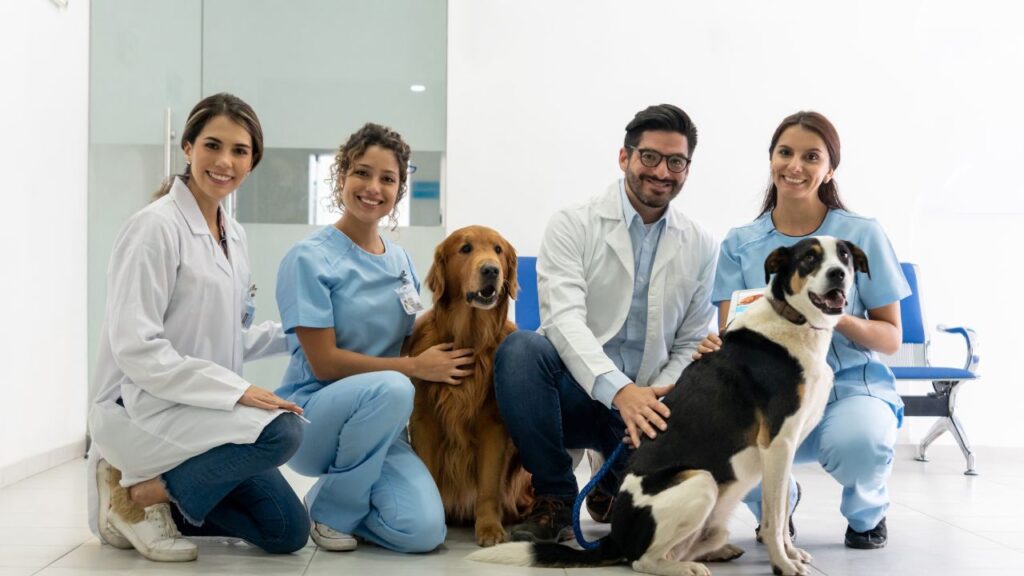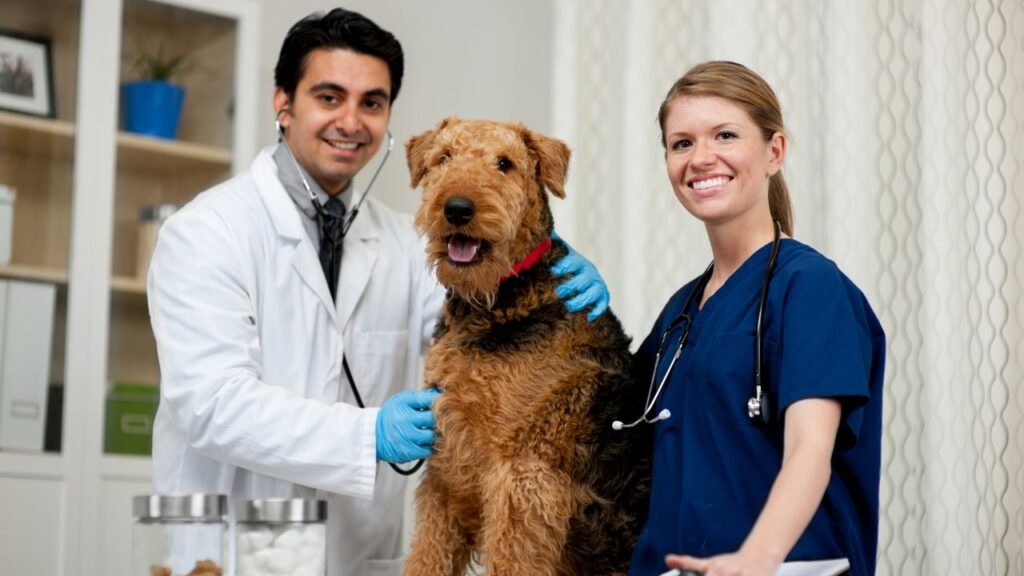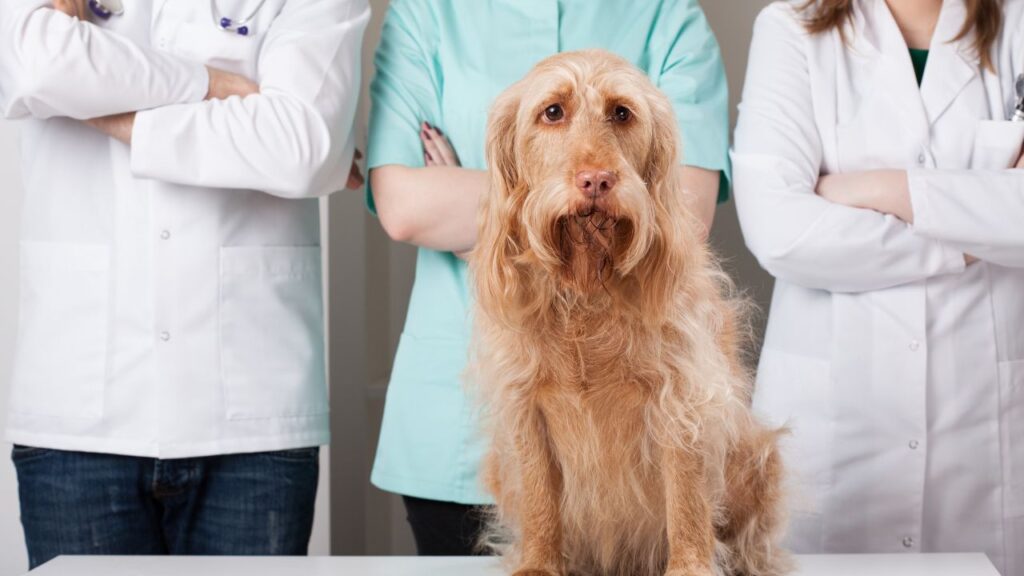Being prepared for your first oncology appointment will ensure you get the most out of your time with the oncologist and help you absorb the information you need to advocate for your dog.
Key Takeaways
- Your first oncology appointment will include your oncologist getting a history of your dog’s symptoms, going over any test results and what they mean, discussing any additional tests needed, and discussing the treatment options.
- Most importantly, this is the best time to discuss your goals and expectations and ask any questions you may have.
Being Prepared for Your First Oncology Appointment
Your first oncology appointment is sure to be overwhelming with a lot of new information thrown at you. To get the most out of it, a little preparation will go a long way.
If your dog already has a diagnosis, choose some credible sources and read a little about it. You don’t need to understand the full scope of the diagnosis and treatment options at this stage but familiarizing yourself with it will help you start to develop a list of questions you want to ask your oncologist.
If you want to get a second opinion appointment from a different veterinarian or at a different hospital, the following information will also apply.
What to Bring with You
When you schedule an appointment with a veterinary oncologist, it is best to ask what they expect you to bring with you so you can be prepared. This list is a good place to start.
Medical Records
The oncologist will certainly request your dog’s medical records, including a copy of any recent test results, x-rays, ultrasound, or other imaging. If you see multiple veterinarians for different things (for example, your regular family veterinarian for preventative care and a complementary medicine veterinarian for acupuncture), they will likely want records from each practice. With your permission, most practices can easily share medical records amongst themselves, but it is always a good idea to have your own copies with you in case they are needed.
Medications, Supplements, and Diet Information
In addition to medical records, you will also want to bring an up-to-date list of medications and supplements you give your dog, along with dosages, even if you think it’s not important.
It is unsafe to use some medications and supplements with certain cancer treatments, so it is important that your oncologist knows about anything your dog gets to best advise you of your options. Similarly, knowing exactly how much of which food you feed your dog (brand and variety), including treats, can help determine if diet changes are needed.
Family Members
Your family members will have questions and concerns too. If someone can come to the appointment with you, they can help with taking down information.
It is best to leave young children at home so that you are not distracted and can focus on your dog and the information the oncologist is giving you.
Note-taking Supplies
It may be a challenge to absorb all the information you will be presented with all at once. Taking notes, or even recording the conversation on your phone, allows you to revisit later when you’ve had more time to process and think about your options.
Questions
Bring any and all of your questions. You will have opportunities to ask questions later, but the first oncology appointment is the perfect time to address the big questions that are weighing on your mind. If your family members cannot attend the appointment with you, you can bring their questions too.
You may be so overwhelmed that you don’t even know what questions to ask. You can use the list below to help you generate your own list of questions.
Some general questions you should ask at your first oncology appointment include:
- What kind of cancer does my dog have and where exactly is it located?
- Has my dog’s cancer spread, or will it?
- What stage is my dog’s cancer and what exactly does this mean?
- How common is this cancer?
- Can my dog’s cancer be cured?
- Are there more tests needed before treatment can begin?
- How experienced are you with treating this kind of cancer? Should I take my dog to a board-certified veterinary oncologist?
- Should I get a second opinion?
- What are signs of the end? When should I consider euthanasia for my dog?
You will also have many questions about treatments for your dog’s cancer including:
- What are the treatment options?
- What is my dog’s prognosis for each treatment option?
- What are the side effects of each treatment?
- What type of side effects indicate an emergency?
- What tests will be needed to know if the treatment is working?
- How much will each treatment cost (total and per treatment)?
- Are there other expenses outside of the treatment costs I should consider (such as travel costs, home care items, long-term medications, etc.)?
- How often will my dog need to come in for treatment and how long will each treatment take?
- How many treatments will my dog need?
- Will my dog need to be hospitalized during or after treatment?
- If treatment is successful, is this cancer likely to come back?
- Is my dog healthy enough to undergo the recommended treatment for this cancer?
- Are there additional or alternative treatments, such as supplements, herbs, diet changes, or acupuncture that can help my dog with this type of cancer?
- Are there currently any clinical trials for this type of cancer that my dog may be eligible for?
- What happens if we decide not to treat this cancer?
- Are there palliative or hospice care options?
Have a Sense of Your Goals
Before your first oncology appointment, you should spend some time understanding your goals and expectations of the outcome, as well as developing a realistic view of the time you can dedicate to your dog and her care during this process.
Understanding your abilities before the appointment will help you and your oncologist set reasonable goals and expectations.
Your Dog’s Quality of Life
Thinking about your dog’s quality of life ahead of time is important too. What are your “deal breakers” for pursuing treatment? For example, if your dog can no longer make it outside to use the bathroom – is this a deal breaker for you and your dog, or something you are OK dealing with?
Your veterinary team can help you determine some quality-of-life parameters, but nobody knows your dog as well as you, so you are the authority on what you and your dog can handle.
Your Finances
If finances are a concern, this is another thing to consider before your first oncology appointment. The costs of cancer treatments will also be part of the discussion, so having a realistic view of your finances before the appointment is essential. This will help direct decisions on the next steps and, in turn, may influence the outcome.
This also includes understanding your options for financial assistance if you need it. You should have a good idea of the available options, as well as how and when to apply, what the limits are, and how and when the funds will be disbursed.
Most major veterinary hospitals require a 50% deposit before performing tests or treatments. Knowing your options ahead of time will help eliminate the stress of making decisions based solely on finances and avoid delaying an important diagnostic test or treatment.
Judgement Free Zone
Most oncologists are non-judgmental when it comes to your choices. They deeply understand that you may not have the same time, emotional, financial, and physical capacity that another client has. They discuss these sensitive topics with every client, so they are unlikely to judge you if you decline treatment, whether it is due to financial limitations or for another reason.
Including the Family
Each family will respond differently to a cancer diagnosis, and each family member may have different expectations and goals. Though you may be the primary caregiver, including other family members in the decision-making process is still important, as they will be affected by this diagnosis too.
Bringing family members with you to the first oncology appointment may be helpful, as you will have another person to take notes, ask questions, and absorb information.
Does My Dog Have to Come?
Even if your initial oncology consult is intended just to be an informative chat, it is essential to bring your dog with you.
First, you must establish a valid client-patient-veterinarian relationship for your veterinarian to advise or prescribe anything.
Second, it will be necessary for your veterinary oncologist to see your dog so they can get an idea of your dog’s typical demeanor, tumor size (if applicable), and overall condition.
Last, it is helpful for many dogs and most veterinarians to have “happy visits” – visits where the dog only gets positive attention, treats, and love, and the veterinarian gets to have a pleasant exchange while they get to know you and their new patient.
Topics
Did You Find This Helpful? Share It with Your Pack!
Use the buttons to share what you learned on social media, download a PDF, print this out, or email it to your veterinarian.

